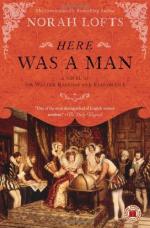|
This section contains 10,653 words (approx. 36 pages at 300 words per page) |

|
SOURCE: "Of Human Knowledge," in Sir Walter Ralegh: A Study in Elizabethan Skepticism, Columbia University Press, 1951, pp. 219–53.
In the essay below, Strathmann places Raleigh's thought in the context of Greek, Roman, and Renaissance scepticism: "we find in [Raleigh's utterances and writings support for his modest reputation in the seventeenth century as a philosophic sceptic."]
"But for myself, I shall never be persuaded that god hath shut up all light of learning within the lantern of Aristotle's brains."
History, Preface, sig. D2v
Strict philosophical skepticism is far more rare in the history of human thought than is its popular counterpart. The varied manifestations of what is popularly called "skepticism" have in common a tendency to challenge received opinions or the dicta of established authority and to submit them to the tests of reason and experience. Often it is the dogmatism of religion or the weight of social custom...
|
This section contains 10,653 words (approx. 36 pages at 300 words per page) |

|


